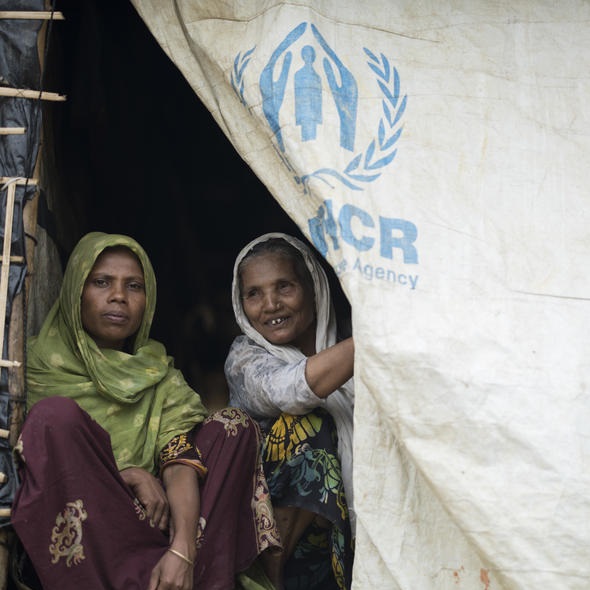Socio-economic assessment of Pakistani refugees in Afghanistan's Khost and Paktika provinces 2017
Afghanistan, 2017
Get MicrodataIdentification
UNHCR-AFG-2017-SEA_KhostPaktika-2.1
Socio-economic assessment of Pakistani refugees in Afghanistan's Khost and Paktika provinces 2017
| Name | Country code |
|---|---|
| Afghanistan | AFG |
Other Household Survey [hh/oth]
UNHCR conducts socio-economic assessments of persons-of-concern (i.e. refugees, asylum-seekers, IDPs, etc.) in a variety of countries in order to inform and improve its programming with the goal of promoting self-reliance. While these assessments are not fully standardized and are tailored to their specific country context, the quantitative surveys share strong similarities in their design and objectives, and are therefore considered a survey series for the purpose of microdata documentation/archiving.
Afghanistan hosts a protracted population of Pakistani refugees, who fled North Waziristan Agency in 2014 as a result of a joint military offensive by Pakistani government forces against non-state armed groups. As of May 2017, UNHCR has biometrically registered over 50,000 refugees in Khost province and 36,000 refugees in Paktika province, where access remains a challenge. Over 16,000 of these refugees receive shelter and essential services in the Gulan camp in Khost province, while most of the others live among the host population in various urban and rural locations.
To better understand the needs of the refugees and the host communities, UNHCR and WFP agreed to conduct a joint assessment of Pakistani refugees in Khost and Paktika. The data collection commenced in May 2017 and covered 2,638 refugee households (2,198 in Khost and 440 in Paktika).
Sample survey data [ssd]
Household and individual
Version
2.1: Edited, anonymous dataset for licensed distribution.
2018-12-15
Scope
The scope of this socio-economic assessment includes:
- Identification of the household
- Characteristics of the household head
- Demographic composition of the household
- Housing characteristics
- Access to services
- Asset ownership
- Sources of income
- Consumption expenditure
- Debt
- Agricultural production
- Livestock ownership
- Food consumption groups
- Coping strategies
- Household Hunger Scale
- Shocks
- Child education
- Intentions
- Priority needs
| Topic |
|---|
| Livelihood & Social cohesion |
| Food security |
Coverage
Areas hosting Pakistani refugees in Afghanistan's Khost and Paktika provinces. This includes Gulan refugee camp as well as various non-camp sites, spread across 10 districts.
All Pakistani refugees living in Afghanistan's Khost and Paktika provinces.
UNHCR PPG: -
Producers and sponsors
| Name |
|---|
| UNHCR |
| Name |
|---|
| WFP |
| APA |
| ORCD |
Sampling
The survey's objective was to deliver representative data of all Pakistani refugees living in Afghanistan's Khost and Paktika provinces. The total population of Pakistani refugees in these provinces at the time of the survey was estimated at around 18,000 households.
For this survey a stratified, two-stage (i.e. clustered) sample design was applied. The 10 refugee-hosting districts of Khost and Paktika were considered sampling strata, but within these the refugee-dense locations of Gulan camp and Lakan (in Maton district) were considered separate strata, resulting in 12 sampling strata overall. Within each of these strata, first a selection of villages was drawn with probability-proportional-to-size, then second a selection of households was drawn from UNHCR's registration database.
The total sample size was 2,638 refugee households.
NB: The original data collection also included a small number of households from the neighbouring host communities; however, these observations were dropped from the public-release version of the dataset.
None.
Information unavailable.
No weights were aplied during the initial data analysis. However, given that selection probailities differed across sampling strata, the public-release version of the data contains sampling weights calculated ex-post, which data users may wish to apply during further analysis.
Data collection
| Start | End |
|---|---|
| 2017-05-11 | 2017-05-29 |
| Name |
|---|
| APA |
| ORCD |
| UNHCR |
Data was collected on paper through face-to-face interviews by 43 enumerators and 2 supervisors. Data entry was carried out at a centralized location using Excel software.
Data processing
The dataset presented here has undergone light checking, cleaning and restructuring (data may still contain errors) as well as anonymization (includes removal of direct identifiers and sensitive variables, and grouping values of select variables). Moreover, households interviewed from host communities were removed.
Data Access
| Is signing of a confidentiality declaration required? | Confidentiality declaration text |
|---|---|
| yes | No attempt will be made to identify respondents or microdata providers, and no use will be made of the identity of any person, facility or establishment discovered inadvertently. Any such discovery would immediately be reported to UNHCR, to allow evaluation of further use, apply further statistical disclosure control methods, impose further restrictions on access, or appropriately re-classify the data. No attempt will be made to create links between datasets provided by UNHCR, or between UNHCR data and other datasets that could identify individuals or organizations. |
UNHCR (2017) Socio-economic assessment of Pakistani refugees in Afghanistan's Khost and Paktika provinces. UNHCR's Microdata Library: http://microdata.unhcr.ogr
Disclaimer and copyrights
UNHCR does not warrant in any way the accuracy of the information and data contained in the datasets and shall not be held liable for any loss caused by reliance on the accuracy or reliability thereof.
Contacts
| Name | Affiliation | |
|---|---|---|
| Solutions | UNHCR | solutions@unhcr.org |
Metadata production
UNHCR-AFG-2017-SEA-KhostPaktika-1.2
| Name |
|---|
| UNHCR |
2019-07-22
Metadata version
Version 2.0 (February 2020)
